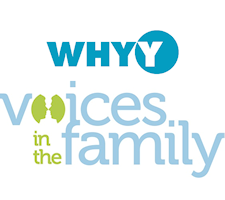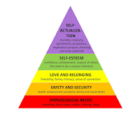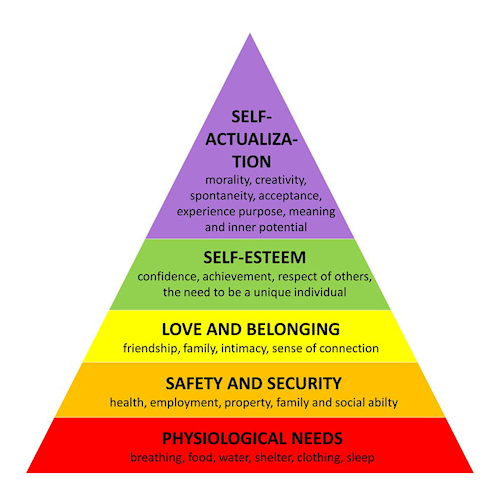Tag Archives:PODCASTS
Podcast: Optimizing Brains by Dr. Kristen Allott, Naturopathic Physician share
I am a big fan of Dr. Allot’s work. I have been providing her information to my clients for years now, and it has played a significant role in how I work with clients who come to me with anxiety, depression, and ADHD-like symptoms. I just discovered that she now has a podcast and is releasing information to the public. I’m excited!!! The bottom line is that providing our bodies regularly with enough nutritious food, namely enough protein and complex carbohydrates can go a long way in helping to bring panic, worry, sadness, and focus/prioritization back into manageable proportions.
I still need to listen to more of them but some of my favorites are:
How What and When You Eat Affects Anxiety – Episode 9 – Optimizing Brains and Bodies
This is an excerpt from a longer seminar in which Dr. Allott explains the physical causes of anxiety , fatigue, agitation, insomnia and sugar cravings. It explains the way your body reacts to the different fuels, or foods, you consume throughout the day. Instead of addressing food in terms
The Importance of Eating Breakfast – Episode 4 – Optimizing Brains and Bodies
In the April Connectors Group we discussed how to deal with some of the challenges that come up when connecting with friends, family and colleagues.
Experiment: 3 Days of Protein – Episode 10 – Optimizing Brains and Bodies
Studies show that our ability to concentrate, have self control, assess a situation, and creatively problem solve for good decision making is determined in large part by the physical resources our brain . This is an excerpt from a longer seminar in which Dr. Allott explains how
WHYY’s Radio Times: How to Have Civil Conversations in a Polarized World share
 I just finished listening to a (pre-Thanksgiving) podcast about having civilized political conversations with other people. Most of the episode is spent interviewing author, Jason Jay, who touches on a lot of things that I have found to be helpful, some of which have taken me 50 years to figure out! I actually recommend starting to listen mid-show at the 29:28 point for about 3 minutes and then jump back to the beginning with that perspective in mind. The whole episode is valuable but I think it helps to start with their discussion about what Jay recommends as the goal when having a challenging conversation from differing viewpoints (Hint: It’s not to emerge victorious) and then talk about everything else.
I just finished listening to a (pre-Thanksgiving) podcast about having civilized political conversations with other people. Most of the episode is spent interviewing author, Jason Jay, who touches on a lot of things that I have found to be helpful, some of which have taken me 50 years to figure out! I actually recommend starting to listen mid-show at the 29:28 point for about 3 minutes and then jump back to the beginning with that perspective in mind. The whole episode is valuable but I think it helps to start with their discussion about what Jay recommends as the goal when having a challenging conversation from differing viewpoints (Hint: It’s not to emerge victorious) and then talk about everything else.
It’s also interesting to me that the interviewer, Mary Cummings-Jordan, appears to struggle herself at some times in the podcast with stepping outside of the notion that conversations like these are battles to be won. And then, when journalist Rachel Swarns joins the conversation, the topic shifts to Swarns and Jay giving some tips about being true to yourself when someone says something offensive while not causing World War III.
The main points I hope people take away from this in a way that is meaningful and understandable are:
- The goal is not to change a person’s mind, but rather to: learn how to better understand the other person and how they came to the opinions that they currently have; share a different viewpoint from your perspective; and, if you’re on a roll, try to find areas of common ground where both people’s needs can be met…at least to a degree.
- Ask questions rather than trying to make sure to hit all of the “standard” talking points on the issue being discussed.
- Don’t attack. “When I hear _________ , I think…” “I feel…” “I want…”
- Respond to offensive statements by illustrating in a meaningful, calm, human/personal way why that statement is hurtful to you or someone that you know or care about.
And just to be clear…this is HARD!! It is a skill that takes practice, a lot of patience, and that requires that you can tolerate feeling vulnerable and anxious, especially as you are trying to grow these skills. When you are so used to talking about contentious, political issues in an argumentative way, it’s incredibly hard to not take the bait that others might dangle in front of you. Take a break if things get too heated, remembering that people stop actively listening when they become defensive, and find a way to lighten the mood. And the next time you decide to dive into a conversation, it will probably feel a little bit easier.
How to have civil conversations in a polarized world : Radio Times : Politics & Policy : WHYY
The latest news and information from the world’s most respected news source. BBC World Service delivers up-to-the-minute news, expert analysis, commentary, features and interviews. Air Date: November 20, 2018 12:00 am Listen 49:00 Guests: Jason Jay, Rachel Swarns As Americans sit down to feast with family and friends this week and share food around the table, many people plan to avoid any talk of politics or social issues.
The Opioid Epidemic—From The Headlines to Hope share

In this episode of Voices in the Family, so many different topics regarding our nation’s opioid crisis are touched on in a very thoughtful, research-based, helpful way. These include: personal stories of how some people fall into addiction; the vulnerability of the adolescent brain to addiction; grief and loss to addiction; how to cope with the issues that arise when you love someone with addiction; tips for what to do and not to when talking with a loved one who is addicted; the value of treating people as individuals, and effective modes of treatment. Lots of great stuff here.
Possible Trigger: I want people to know that parts of this episode could be very upsetting to some because there are people who have lost their loved one to addiction.
The Opioid Epidemic-from the headlines to hope : Voices in the Family : Health : WHYY
The news can sound dire. Opioid addiction is ruining families and taking lives at an ever increasing rate. In this roundtable discussion, Dr. Gottlieb brings together a clinician, researcher, family members and individuals in recovery to go beyond the headlines and look at what is working to bring addicts into treatment.
Radio Times: Marijuana in the Tri-State and New Research on Pot share
 This is a discussion with two researchers, Teresa Franklin and Joel Gelernter, and two local reporters, Susan Livio and Maria Panaritis, talking about the current pitfalls involved with medical marijuana. Discusses the problems that remain with the federal government still having it scheduled as a category 1 drug. Additionally, concrete information about dosing for the herbal version of marijuana is very challenging and makes it difficult for it to truly be prescribed by mainstream doctors. Click the link image and learn more in this informative interview.
This is a discussion with two researchers, Teresa Franklin and Joel Gelernter, and two local reporters, Susan Livio and Maria Panaritis, talking about the current pitfalls involved with medical marijuana. Discusses the problems that remain with the federal government still having it scheduled as a category 1 drug. Additionally, concrete information about dosing for the herbal version of marijuana is very challenging and makes it difficult for it to truly be prescribed by mainstream doctors. Click the link image and learn more in this informative interview.
Marijuana in the tri-state and new research on pot : Radio Times : WHYY
Fresh Air opens the window on contemporary arts and issues with guests from worlds as diverse as literature and economics. Terry Gross hosts this multi-award-winning daily interview and features program. Guests: Susan Livio, Maria Panaritis, Teresa Franklin and Joel Gelernter In this hour we’ll take a look at the ongoing debate over proposed state medical marijuana legislation, and the latest research on what marijuana does to our bodies.
NPR's TED Radio Hour: Maslow's Human Needs share

A famous psychologist, Abraham Maslow created a well-known and researched model, a hierarchy, of basic human needs that impact our mental health. They are ordered from foundationally important basic needs to self-fulfillment needs: physiological needs, safety needs, love and belongingness needs, esteem needs, and, finally, self-actualization needs.
This interesting TED Radio Hour episode takes a dive into thinking about these basic needs in our modern times. Using people’s individual stories to illustrate each level of Maslow’s hierarchy. If you are interested in reading a more complete overview about the hierarchy, I encourage you to take a look at this easy to read article on Simple Psychology.
Maslow’s Human Needs
Humans need food, sleep, safety, love, purpose. Psychologist Abraham Maslow ordered our needs into a hierarchy. This week, TED speakers explore that spectrum of need, from primal to profound.





